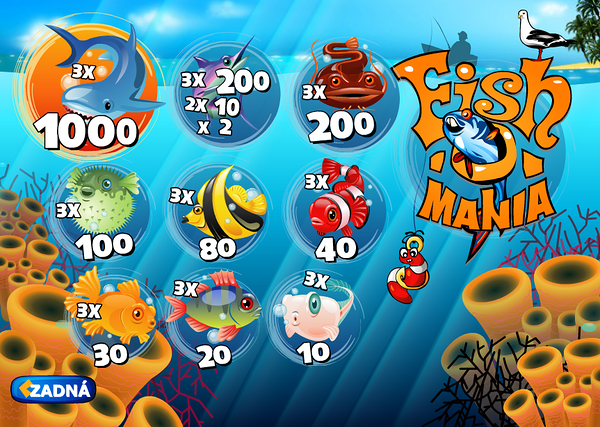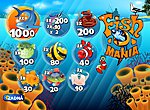If you had asked me a year ago „Where do you see yourself this time next year?“, my answer would not have been what my current job is right now. It probably wouldn’t have even come up in my head. Luckily, this is where I am today – working at Playtech as a QA Engineer in our Casino unit. I am often asked if my role is all about clicking around and trying to break things. Although I would be lying if I denied getting paid for playing games, there’s much, much more in it, and that’s what makes the difference for me.
When I joined Playtech almost a year ago, I more or less knew what the company was doing – designing online gaming software and providing all the technical solutions around it – and I knew they were doing it very well. My most recent work experience at that time had been in building and office management, so as a newbie to QA, I actually had very little idea about what to expect about my role in particular.
But thanks to the thorough training plan I was provided and a very supportive team, the picture got clearer by the day and it still keeps clearing up. And it will probably continue doing so for a year or two from now as Casino, the Playtech flagship product I’m working on, is massive!
Plan – the base for a successful QA project
The setup of our work processes have a huge impact on helping newbies like myself, and even more experienced QA-s, to understand our product better, and help us see the impact of new features and additions on all its aspects (for example, games and gaming, player experience, service performance and so on).
We begin by putting together an initial testing scope for the project. This is usually done by one person, a more experienced team member. I’ll use one of our recent projects, Universal Game Ban (UGB), as an example. The aim of the project was to implement a new and improved game banning system for us and our licensees. The initial scope was discussed with the whole team in several meetings to better understand what we need to do, what to cover, what not to cover, and to make sure we understand all points unequivocally.
These meetings are crucial for getting to know the product better and start seeing how all the pieces click together. I enjoy this part a lot, because I find seeing the bigger picture vital for my work. It helps me understand how a small change might have an impact somewhere else and how we can prevent negative effects on other parts of the system. Every single member of the team can have their say in the planning, every question is discussed. For this specific project, the final scope included test cases for 3 different servers, WebAPI testing, regression testing, performance testing, autotests (which we review manually), and to top it off some data migration testing and finally making sure everything works as intended after merging.
Let’s dig into testing!
After initial planning we naturally get into testing and I can reassure you this is not JUST about pushing buttons. Mainly because our team (go, Casino QA Team 3!) sometimes gets to test things when there aren’t even any buttons to push yet. For instance, when we test all functionalities of a new game without ever seeing the graphical side of it. But in the case of the UGB project, we had the luxury of a few buttons here and there. Our focus with UGB was making sure the new banning system does everything the old system did, and more.
For testing we use tools like Putty, Fiddler, JIRA, Postman, Excel and a few internal ones such as the Frontend Tool (mainly for testing without an interface) and the Autotest Web Launcher (anything and everything related to automated testing).
As mentioned before, with UGB, we tested 3 different servers. Our job was to make sure the new banning system works, that there aren’t any server errors, the information sent and received is correct, and if not - why. Diving into server logs requires a keen eye and a focused mind, but you’ll get used to the massive amounts of information and learn the ways of finding what’s necessary.
If you do find a mistake – report it and it will get fixed by developers. Something needs to be done differently – discuss it with the team and your project manager and have it done differently. Discussion is a part of every step in our work. We also have additional meetings during the testing phase to update each other on how far we are with the testing, what needs to be done next, what problems we have ran into, etc. It also helps to just take the time and talk to each other about other topics for 5-10 minutes to take the tension off.
It can take several months to finish bigger projects like the Universal Game Ban one, but irrespective of the time spent on a project, it still feels fulfilling to see the „Time remaining“ column drop to 0 and hand over finished work to your project manager.
Why I fell in love with my job
During my 10 months at Playtech so far, I’ve had the chance to work on many different projects and tasks, some more interesting – like testing new games –, some less fascinating, such as checking 450 games in 5 languages while trying to find broken fonts and other defects. I’m not saying the latter didn’t give me anything though. It was time-consuming, but I found it enjoyable as it was something I managed on my own while most of other QAs and my mentors were on vacation. We finished the task with a group of newbie QA members even though we had only been working in Playtech for two short months. Here’s a very small illustrative defect from that one-time-only task. Believe me, we detect way bigger fish every day, so don’t take it as an one-to-one example of what we do here at Playtech.
To conclude, why do I feel extremely lucky to have ended up working in Casino QA and what do I love most about it? Some think that a QA working in Casino, one of Playtech’s biggest business units, might feel like an unimportant cog in the big machine. The reality is the opposite. I am reminded every day of what I’m responsible for – making sure our position as a gaming industry pioneer is upheld and maintained.
What I love most about my job and team is that they show trust in you from day one. I didn’t know all the ropes and I’m still learning to this day, but from the beginning I could feel there was trust between each and every one of our QA-s. Although we are split into three teams, it never feels like I can’t ask someone outside of my team for help or advice. Help will always be given at Playtech to those who ask for it, and my experience has nothing but proved it. I doubt it will ever change as this is an integral part of our work culture. So, I encourage all testing newbies out there to join us at Playtech – you’ll be welcomed to a supportive community and together, we’ll be designing gaming experiences to millions!
*Did you spot the defect? The button on the bottom left has double text!







